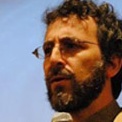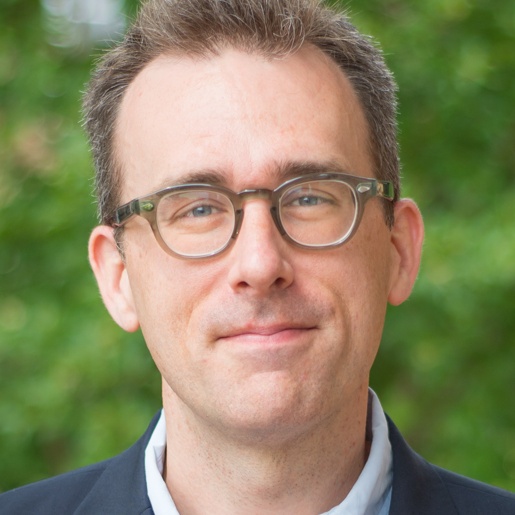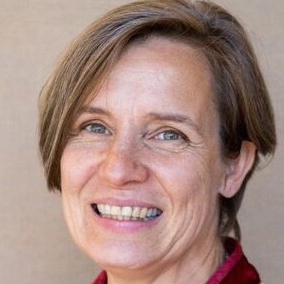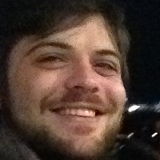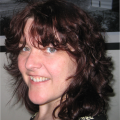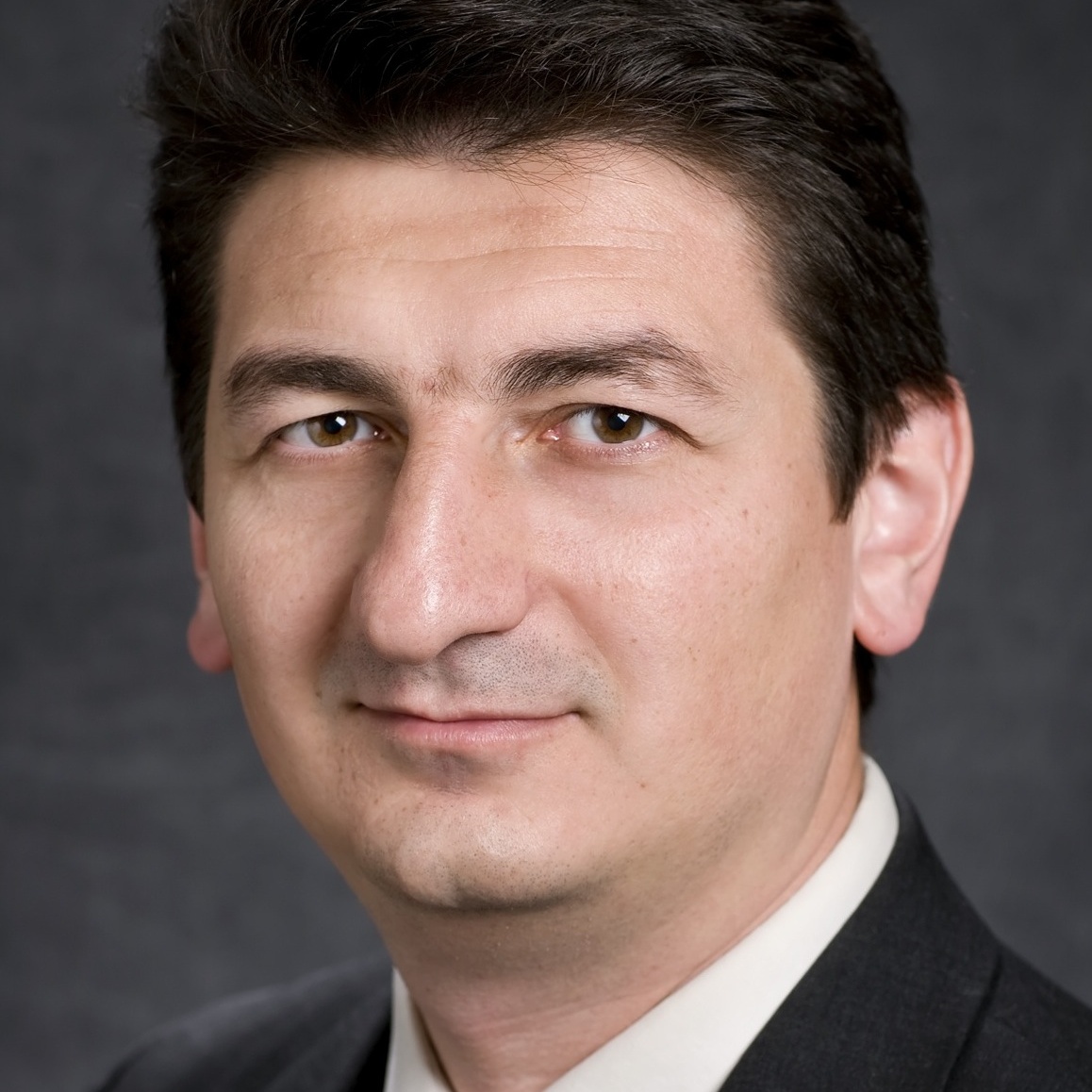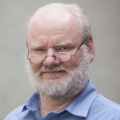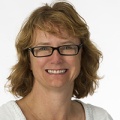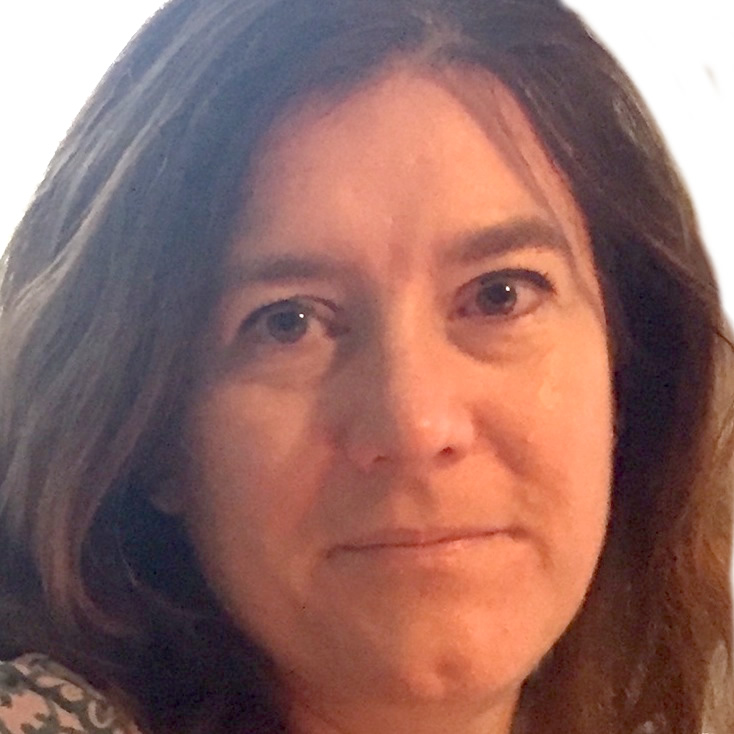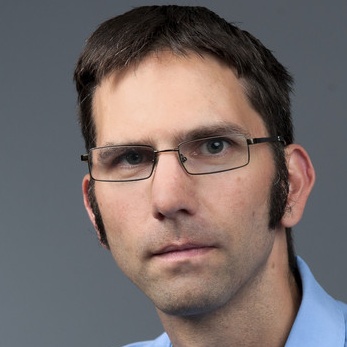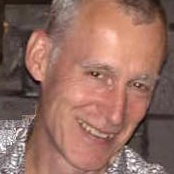Micah Altman
Dr. Micah Altman (NDSA Chair, 2nd term, 2013-18) is Director of Research and Head/Scientist, Program on Information Science for the MIT Libraries, at the Massachusetts Institute of Technology. Dr. Altman is also a Non-Resident Senior Fellow at The Brookings Institution. Prior to arriving at MIT, Dr. Altman served at Harvard University for fifteen years as the Associate Director of the Harvard-MIT Data Center, Archival Director of the Henry A. Murray Archive, and Senior Research Scientist in the Institute for Quantitative Social Sciences. Dr. Altman conducts research in social science, information science and research methods -- focusing on the intersections of information, technology, privacy, and politics; and on the dissemination, preservation, reliability and governance of scientific knowledge.
Brandon Butler
Brandon Butler is the first Director of Information Policy at the University of Virginia Library. He provides guidance and education to the Library and its user community on intellectual property and related issues, and advocates on the Library’s behalf for provisions in law and policy at the federal, state, local, and campus level that enable broad access to information in support of education and research. Butler is the author or co-author of a range of articles, book chapters, guides, presentations, and infographics about copyright, with a focus on libraries and the fair use doctrine. Before joining the UVA Library, Brandon was the Practitioner-in-Residence at the Glushko-Samuelson Intellectual Property Law Clinic at the Washington College of Law at American University in Washington, D.C., where he supervised clinic student attorneys who represented clients in a variety of IP matters. He also taught traditional law courses, including Copyright and Fair Use in Practice. Before teaching at the law school, Butler was the Director of Public Policy Initiatives at the Association of Research Libraries (ARL), an association of 125 academic and research libraries in North America. Before coming to ARL, Butler was an associate in the Media and Information Technologies practice group at the Washington, D.C., law firm Dow Lohnes PLLC (now Cooley LLP). He received his J.D. from the University of Virginia School of Law where he was an editor at the Journal of Law and Politics, obtained an M.A. in philosophy from the University of Texas, and did his undergraduate degree at the University of Georgia.
Jake Carlson
Jake Carlson is the Research Data Services Manager at the University of Michigan Library. In this role, he explores the application of the theories, principles, and practices of library science to data management and curation issues. In particular, Carlson seeks to increase the capabilities and opportunities for research libraries to provide services supporting data-related research. Carlson was a primary architect of the Data Curation Profiles Toolkit developed by Purdue and the University of Illinois at Urbana-Champaign (http://datacurationprofiles.org), and was the PI of the Data Information Literacy project (http://datainfolit.org). He is a co-editor, with Lisa Johnston, of the book Data information Literacy: Librarians, Data and the Education of a New Generation of Researchers published in 2015 by the Purdue University Press.
Sunje Dallmeier-Tiessen
Sünje Dallmeier-Tiessen is the data coordinator in the Scientific Information Service at CERN. Together with her colleagues she builds services to enable researchers to practice Open Science and to take steps towards reproducible research. As part of this the CERN Open Data Portal (opendata.cern.ch) emerged and a new service called CERN Analysis Preservation is under development. Both pay particular attention to the challenge of future reusability and reproducibility of research outputs, e.g. through easy and comprehensive preservation of data, code etc... She holds a PhD in Information Science. Her previous positions in publishing and research management made her realize the need to build Open Science "workflows" that incentivize sharing and that integrate well into research environments. Hence, she co-chaired the RDA Data Publishing Workflows group and serves on several boards of national and international bodies.
Anita de Waard
Anita de Waard is Vice President Research Data Collaborations, RDM Services, Elsevier. Anita de Waard has a degree in low-temperature physics from Leiden University, and worked in Moscow before joining Elsevier as a physics publisher in 1988. Since 1997, she has worked on bridging the gap between science publishing and computational and information technologies, collaborating with groups in Europe and the US. From 2006 onwards, de Waard has been working on a thesis at the University of Utrecht on a discourse analysis of scientific narrative, with an emphasis on finding key epistemic components in biological text. Her past work includes developing a semantic model for research papers, and co-founding the interdisciplinary member organization Force11.org. For her current remit as VP Research Data Collaborations, Anita is developing cross-disciplinary frameworks to store, share and search experimental outputs, in collaboration with academic and government groups. She co-chairs the RDA Data Discovery Interest Group, and is on the Steering Committee of the National Data Service.
Phillip Galinsky
Phillip Galinsky is Co-Founder and Executive Director of Scientific Society, a nonprofit whose mission is to contribute to bringing about a scientific society through the development of open source software tools that enable researchers to standardize, automate, document, and replicate or iterate upon scientific research. Galinsky is also a lab manager and technologist at the Cognition, Affect and Temperament (CAT) Lab at The Pennsylvania State University. Phil studied Psychology, Philosophy, and Peace Studies at Manhattan College. He is working towards a BCIA Clinical Neurofeedback Certification. His programming language of choice is Python. Phil has a variety of personal interests including seeking to understand the causes of autism and social motivation neurodevelopment, developing noninvasive brain-machine interface systems, developing virtual reality environments for specific research applications, and developing blockchain based systems. During his time at the CAT Lab, he has been awarded two grants as Co-Investigator and lead technologist for his work with mobile eye tracking systems.
Sandra Gesing
Sandra Gesing is a research assistant professor and computational scientist at the University of Notre Dame. Her research interests include science gateways, computational workflows as well as distributed and parallel computing under consideration of sustainability of applications and reproducibility of scientific research. In this context, she also works on the whole data lifecycle and preservation of modeling and simulations. She is ND’s PI for the Science Gateways Community Institute (SGCI) and co-PI of PresQT. Prior to the position at Notre Dame, she was a research associate in the Data-Intensive Research Group at the University of Edinburgh, UK, in the area of data-intensive workflows and in the Applied Bioinformatics Group at the University of Tübingen, Germany, in the area of science gateways and grid computing. Additionally, she has perennial experience as a project manager and system developer in industry. As head of a system programmer group, she has led long-term software projects (e.g. infrastructure on web-based applications). She received her German diploma in computer science from extramural studies at the FernUniversität Hagen and her PhD in computer science from the University of Tübingen, Germany.
Peter Jaszi
Peter Jaszi is a Professor of Law emeritus at American University Washington College of Law, where he taught copyright law and helped to establish the Program on Intellectual Property and Information Justice. In 2007, he received the American Library Association’s L. Ray Patterson Copyright Award. Jaszi writes about about copyright history and theory; since 2005, he and Patricia Aufderheide have collaborated with members of various creative communities to develop Codes of Best Practices in Fair Use. Thiproject described in their book, “Reclaiming Fair Use” (2d ed. 2018, Univ. of Chicago Press).
Rick Johnson
Rick Johnson is Co-Program Director, Digital Initiatives and Scholarship at the University of Notre Dame. Johnson directs the design and development of the Libraries' data curation and digital library solutions for research, teaching, and learning. These include CurateND, the library’s service to curate, preserve, and spotlight collections and research at Notre Dame. Rick also provides oversight of data management planning services within the libraries, and supports activities in the Center for Digital Scholarship. With over 15 years experience, Rick has worked in software development, testing, sales, and management. In addition, Rick currently serves as a Visiting Program Officer for SHARE with the Association of Research Libraries. Rick has contributed to several collaborations such as DASPOS (Data and Software Preservation for Open Science). Over the years, he has been active in the multi-institutional Hydra collaboration as both a code committer and technical manager on several digital repository related projects.
Tevfik Kosar
Tevfik Kosar is Associate Professor, Computer Science and Engineering and Director, Data Intensive Distributed Computing Laboratory at University at Buffalo (SUNY). Kosar's research focus is data-intensive distributed computing, with applications in eScience, Grids, Clouds, and collaborative computing systems. His work includes cyberinfrastructure design and development; end-to-end data and workflow management; I/O optimization, modeling, and scheduling; distributed storage management; and coordination of computation and I/O in distributed environments. Kosar designed and developed the Stork distributed data scheduling system currently used by institutions worldwide; and the PetaShare distributed storage network that managed more than 700 Terabytes of storage located across nine university campuses in Louisiana. Kosar is currently working on a Cloud-hosted data transfer scheduling and optimization service, called StorkCloud.
Rolf Krahl
Rolf Krahl is responsible for scientific data management at Helmholtz-Zentrum Berlin für Materialien und Energie (HZB). HZB operates large scientific facilities, such as the BESSY II synchrotron light source and users from all over the world come to Berlin to use these facilities for their research. Rolf's task is to setup and manage a data repository for the preservation and long term archival of the scientific data collected at HZB's instruments. He has a background in mathematics. Before joining HZB, he has been developing software for scientific computing, mainly in the field of Computational Fluid Dynamics.
Natalie Meyers
Natalie K. Meyers is COS Labs Partnerships and Project Manager at the Center for Open Science (cos.io) during a part-time leave from her faculty role as an E-Research librarian at the University of Notre Dame. At COS, Natalie works with on research projects and with software developers and platform providers to facilitate integrations that connect research information and researchers’ tools. At her university, she devotes a significant part of her time as an embedded data librarian and has served as a member of senior personnel for the USA’s NSF funded Data and Software Preservation for Open Science (daspos.org ) project, as digital librarian for the Bill and Melinda Gates Foundation VecNet project, and is co-PI on the PresQT project. Natalie helps pioneer and provide research data consulting services, including more in-depth data management services in support of grant-funded research and works to address needs for preserving data and software.
Fiona Murphy
Fiona Murphy is an independent research data and publishing consultant advising institutions, learned societies and commercial companies, Fiona is also an Associate Fellow at the University of Reading, a Board Member for the Dryad Data Repository and has written and presented widely on data publishing, open data and open science. She is a past and current member of several research projects including PREPARDE (Peer Review of Research Data in the Earth Sciences), Data2Paper (a cloud-based app for automating the data article submission process) and the Scholarly Commons Working Group (a FORCE11 project devising principles and practices for open science systems).
Jonathan Petters
Jonathan Petters is Data Management Consultant and Curation Services Coordinator, at Virginia Tech. Petters provides research data management planning, training, and curation support to researchers across Virginia Polytechnic Institute and State University through the University Libraries. This position includes a supervisory role in development of the Libraries research data repository and geospatial metadata catalog. He recently participated in a working group that developed the Materials, Metals and Minerals Society’s report Building a Materials Data Infrastructure and currently participates in Research Data Alliance groups investigating data fitness and actionable data management plans. Previously Jon served in a similar data management role at Johns Hopkins University with the university’s Data Management Services group. Petters was also an American Association for the Advancement of Science (AAAS) Science and Technology Policy Fellow in the U.S. Department of Energy’s Office of Science, where he investigated data management policies and needs within the physical sciences.
Jeffrey Spies
Jeffrey Spies is the co-founder and Chief Technology Officer (CTO) of the Center for Open Science (COS), a non-profit technology company missioned to increase openness, integrity, and reproducibility of scholarly research. COS was launched in 2013 with a $5.25M grant from the Laura and John Arnold Foundation and has since raised over $21M in additional funding. As CTO, Jeff is responsible for technical strategy, product vision, software architecture, external partner/funder development, and management of COS Labs—COS's research and development team. He is also the co-director of SHARE, a partnership with the Association of Research Libraries to create a free, open data set of scholarly research activity across the research life-cycle. Jeff holds a Visiting Assistant Professor position in the Department of Engineering and Society at the University of Virginia’s School of Engineering and Applied Science. Jeff was recently named an Association for Psychological Science Rising Star whose “work has already advanced the field and signals great potential for continued contributions.” Jeff is regularly invited to speak on topics of openness, reproducibility, workflow, and the role of technology in scholarship. Jeff recently testified on these topics at a United States House congressional hearing. Jeff completed his undergraduate work at the University of Notre Dame, where he also earned his Masters while in a joint program in Psychology and Computer Science. He went on to receive his Ph.D. in Quantitative Psychology from the University of Virginia. His dissertation included the development of the Open Science Framework--a free, open source workflow management system and scholarly commons that is now the flagship product of COS.
Angus Whyte
Dr Angus Whyte is a Senior Institutional Support Officer at the Digital Curation Centre, University of Edinburgh. He is responsible for developing online guidance, research and consultancy on research data service development in projects spanning a variety of organisations and disciplines. These typically focus on developing the stakeholder engagement and skills needed to sustain data services. Angus has a background in social informatics research, in the area of online policy development and consultation.
